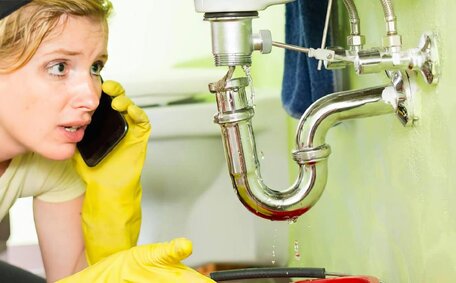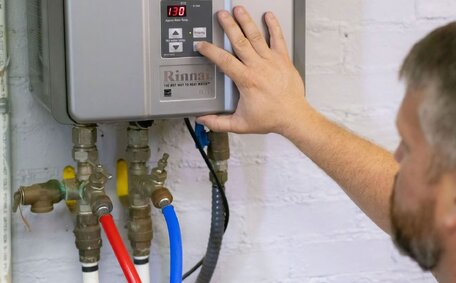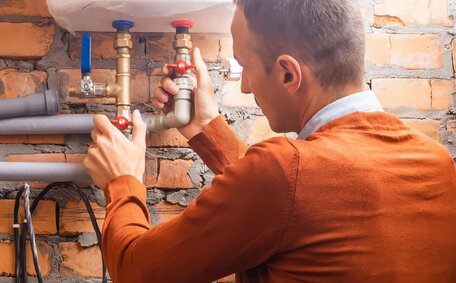Introduction to smart leak detection technology
Smart leak detection technology integrates sensors, connectivity, data analytics and automation to provide real-time monitoring for water utilities when comes to detecting irregularities. This enables early detection of water leaks, as well as proactive prevention of leaks, water damage, and waste.
Advantages of smart leak detection technology are:
- Accurate detection of leaky pipes, tanks, appliances etc through sensors that monitor flow rates, pressure, humidity, vibration and more
- Instant notifications send alerts to property owners, informing them of detected leaks through mobile apps
- Automatic water shutoff valve systems are triggered not just for leaks but for other problems when they exceed safe thresholds
- Analysis of water usage patterns to identify anomalies that might suggest leaks up to the smallest drip
- Major reductions in nonrevenue water and utility bills, alongside savings from lower insurance claims annually
This solution can also revolutionise water management practices for homes, commercial buildings, and municipal water systems, delivering significant benefits to users. By rapidly finding and stopping leaks that could otherwise go undetected for months, smart leak detection can help provide major economic and environmental gains for their customers.
Key components of smart leak detection systems
Water leak detectors and other key components make up a smart leak detection system, which incorporates:
- Leak detector sensors - Monitor changes in pressure, flow rates, vibration, temperature, and humidity to detect leaks. Sensors are placed strategically along the water line, appliances, sump pumps, etc.
- Water flow metres - Measure the flow rate and detect abnormal usage patterns in your water system, indicating potential leaks.
- Moisture sensors - Detect any instance where water leaks up to the slightest escape by monitoring humidity levels in walls, floors and other areas.
- Smart water valves - shut off water automatically when leaks exceed set thresholds, preventing wastage and damage.
- Connectivity - Sensors and meters use Wi-Fi, radio, Bluetooth, or cellular networks for smart home hub connectivity.
- Smart devices like smartphone apps and dashboards - Employ water sensors for alerts in real time for leak detection, remote water shutoff control and visual tracking of water usage.
This system offers 24/7 monitoring, providing instantaneous water leak detection and preventing severe water leakage and damage. Cloud connectivity further provides insights into data patterns to identify slow leaks over time.
Leak detection sensors
Leak detection sensors are devices employed to monitor plumbing systems for water leaks. They can be used to track changes in measurements like water pressure, flow rates, temperature and vibration that indicate a leak may be present.
Typical leak detection sensors encompass:
- Water flow sensors - Detect Elevated flow rates than usual that signal unseen leaks.
- Pressure sensors - Gauge decreases in water pressure to estimate the volume of water potentially lost to leaks.
- Listening sticks - Employed as acoustic sensors to Listen for the distinct sounds of dripping water to locate leaks.
- Humidity sensors - Detect moisture in walls from hidden water leaks.
- Vibration sensors - Identify anomalies in pipe vibrations indicating water escaping.
Advanced IoT technology in leak detection sensors now even harness quantum sensing capabilities. This could also revolutionise the way underground water leaks are detected, often enabling detection with less than the need for excavation to find their location.
These sensors swiftly and accurately identify leak sources, facilitating prompt action to mitigate water wastage and damage.
Moisture sensors
Moisture sensors play a key role in smart leak detection systems by enabling early detection of water escapes. They act as a vigilant protection against water incursions by monitoring humidity levels in walls, floors, ceilings and other areas for anomalies.
Key benefits of moisture sensors for leak detection include:
- Detect plumbing, appliance, roof, and underground pipe leaks by sensing increased humidity
- Prevent significant property water damage by addressing leaks early on, avoiding unnecessary water wastage
- Locate the origin of leaks by deploying a network of sensors across flood-prone areas
- Issue alerts with minimal delay, informing homeowners and prompting leak investigations and repairs before major flooding ensues
Continual humidity tracking allows moisture sensors to monitor 24/7 and instantly reveal areas where water leaks might otherwise remain undetected for an extended period. They are a vital component enabling smart leak detection systems to maximise property protection and water conservation.
Smart water valves
Smart water valves, with cutting-edge water technology, effectively manage water supplies by automating control and enabling remote shut-off when leaks are detected. They halt water flow immediately to avert flooding and reduce waste and damage.
Principal features of smart water valves for leak prevention encompass:
- Connectivity to leak detection sensors and smart home systems via WiFi/wireless networks
- Real-time automatic shutoff is activated when sensors detect abnormal water flow, such as during leaks or when appliance hoses burst
- Can use smartphone apps for remote control - enables immediate response even when away from home
- Preset limits to automatically shut off water flows exceeding usual norms
- Ability to automatically turn water back on once leak investigations and repairs have been completed
By immediately stopping high water flows before flooding can occur, smart water valves minimise property damage and water wastage from leaks. Their connectivity and automation make them a key component enabling round-the-clock leak protection.
Water flow meters
Water flow metres are devices installed in plumbing systems to precisely measure the rate of water flow. They are a vital component of smart leak detection as they enable tracking of water usage patterns to identify anomalies that may indicate a leak.
Smart meters, through persistent daily monitoring, identify leaks by noting signals like:
- Elevated flow rates than usual
- Water flow at unexpected times, such as midnight
- A surge in consumption that deviates from historical usage patterns
Catching leaks early prevents immense wastage of treated water. As an example, annually, over 1 trillion litres of treated drinking water, valued at 28 billion, are lost in Canada alone due to leaks in municipal water infrastructure. Hence, adopting technology can aid smart water flow monitoring in ensuring significant cutbacks in these losses.
Connected to home automation systems and Daily tracking of water flow with meters also facilitates mapping of usage by fixture, pinpointing inefficiencies. They empower consumers with transparency over their water consumption for more sustainable usage.
Case studies of smart technology success in finding leaks
Smart city water grid technology by TaKaDu is helping water companies improve leak detection and localisation. Last year in the UK, Thames Water saw a 20% reduction in leakage with TaKaDu, enabling savings of 20 million litres per day. The cloud-based Central Event Manager receives high-frequency data from water flow and pressure sensors to rapidly pinpoint leaks.
Quantum sensing technology by Sewer AI allows underground water pipes to be scanned without excavation. In Indonesia, this technology located a major leak under 4 metres of earth in just 30 minutes - preventing immense water wastage due to pipe breaks each year. The novel sensors can scan areas up to 15 metres deep to find leaks.
In Philadelphia, smart ultrasonic sensors by Gutermann cut leaks by 20%, conserving 38 million litres daily. These sensors attach to fire hydrants and detect leak noise. Their success led to major United States metro areas adopting the technology.
These cases validate that smart water systems can efficiently manage the water network and find leaks hidden underground, within buildings and in vast municipal pipe networks. Early detection and control of water loss yield considerable financial and ecological benefits.
Installing smart leak detection in homes
Installing home water leak detection is straightforward, starting with choosing suitable sensors and devices. Here are the key steps:
- Select leak detection sensors such as water flow sensors, pressure sensors or moisture sensors based on risk areas.
- Strategically place sensors near appliances, pipes, and flood-prone spots to enable early leak detection.
- Fit smart water valves to main lines featuring auto-shutoff to ensure water flow ceases during leaks.
- Connect sensors and valves to a smart home hub or controller using WiFi, wireless mesh networks or cellular.
- Link hubs to a monitoring app on your smartphone for alerts, controls and real-time tracking of water use.
- Programme sensitivity of sensors and water use thresholds for automatic device actions like shutoffs.
- Conduct final checks by triggering controlled test leaks to validate monitoring and responses.
With professional installation guidance for optimal coverage, smart leak tech seamlessly integrates with smart home systems, providing homeowners peace mind through comprehensive leak protection. The investment offers great returns through 24/7 protection, reduced insurance premiums, lower utility bills and conservation of precious water resources.
Innovations in leak detection technology
Recent innovations in smart technologies for leak detection are enabling more proactive and intelligent water management. Advanced technology can transform the field of sensors, data analytics, and automation.
A key development is self-powered acoustic sensors that 'listen’ for leak noise. These sensors operate without batteries by extracting energy from water pressure changes, allowing long-term, maintenance-free leak location. Sophisticated models use machine learning to analyse sensor data and distinguish leak sound patterns.
Another breakthrough is utilising printed sensors that can detect floodwater contaminants. Deploying flexible flood sensor technology throughout water networks ensures swift notifications of chemical leaks, facilitating containment. Such technology could prevent events like West Virginia’s 2014 Elk River chemical spill.
In leak localization, quantum gravity gradiometry and ground penetrating radar avoid the need for extensive blind excavation. Sewer AI’s novel sensors scan underground pipes to accurately identify where leaks are located, even up to 4 metres deep, averting significant water losses.
Smart water networks integrate these sensors with cloud analytics and dynamic valve controls to provide entire water system leak management. Systems like TaKaDu CEM enable early detection and real-time response to curb leakage volumes by over 20%.
With accelerating technology innovation, the future for enhanced leak protection and smarter water usage looks promising. AI-enabled sentient water grids that understand system behaviours could soon be a reality.






